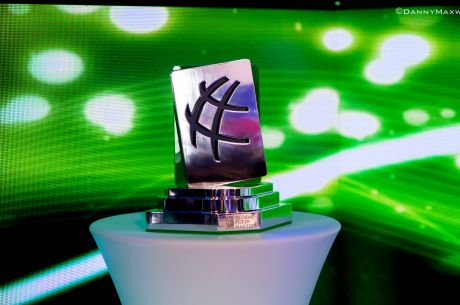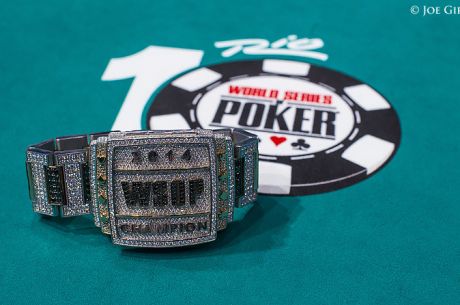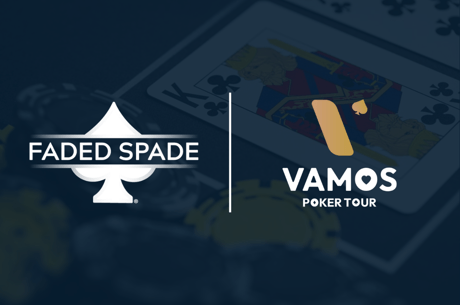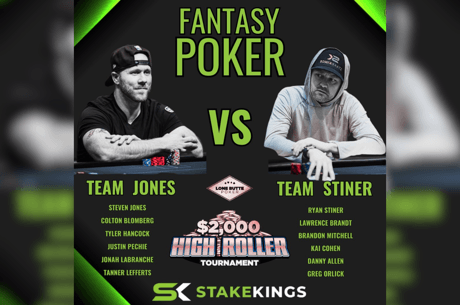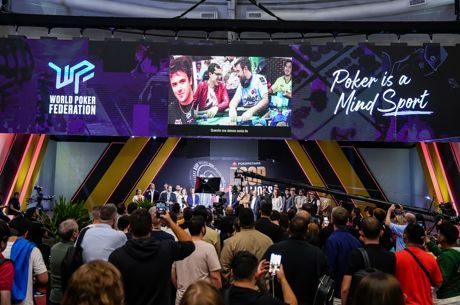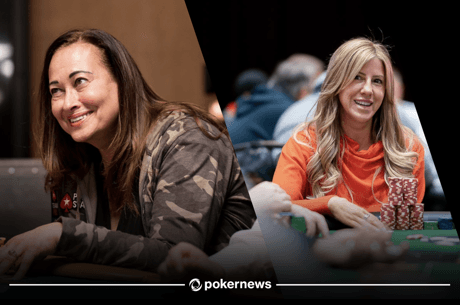For The Good of the Game: Matt Savage Looks Back on 25 Years in Poker

Poker's most recognizable and accomplished tournament director began his career as a lowly chip runner, worked his way into a front row seat to the poker boom and successfully standardized tournament poker rules around the world. He has helped guide the game's global growth in the modern era.
But what many people don't know about Matt Savage is that he started out as a poker player.
"I was always a player," he told PokerNews. "A bad player, but a player."
Savage was a service tech at a Bay Area alarm company in 1991 when he realized he could make more money as a chip runner at the Garden City Casino in San Jose, California. Seeing dealers making $200 to $300 a day made him want to get in the box, and when the Bay 101 Casino opened in 1994, Savage somehow convinced them to take a chance on him.
"I wasn't really qualified, but they liked my attitude toward poker and they hired me anyway," Savage said. "I started dealing and I just loved it. I loved working with people, I loved the money I was making and I would take all the overtime I could and pick up shifts whenever anyone asked. I'd probably still be dealing if I hadn't burned myself out and had to go on the floor. Carpal tunnel set me on the path to where I am today."
The pain of carpal tunnel syndrome forced Savage to take a floor person position at Bay 101 and he quickly developed a reputation as a fair and just one. When the card room's tournament director would take time off, Savage would fill in and he continued to play tournaments himself in the Bay Area and beyond for the next few years.
Seeing firsthand how tournament rules seemed to change from room to room, Savage said he started thinking about the need for standardization, and in 2001, he headed to the World Series of Poker in Las Vegas with a plan to convince others in the industry of exactly that.
"I went to the WSOP with the intention of talking to key people in the industry about a standardized set of rules for tournaments," Savage said. "Right away, Bob Thompson, who was the World Series of Poker tournament director at the time, and has since passed away, and his son Robert, said it wasn't going to happen. Back in those days, I was a young person in the industry and there were all these old guys running events that basically felt there was no need to hear from some young guy how they should do things. Luckily Linda Johnson, Jan Fisher and David Lamb gave me a chance and more importantly, realized that a standardized set of rules would be better for the different properties and the players."
Johnson gave Savage a little time at her World Poker Industry Conference at The Orleans Hotel & Casino. Twenty-four different tournament staffers showed up, and after a bit of back and forth on the topic, the Tournament Directors Association was born.
The organization, whose stated goal is to advance the industry and help adopt uniform poker tournament rules, has since grown to over 2,500 members in 63 countries. There's also an bi-annual summit where they debate, discuss and adapt rules to change alongside the game.

Savage took over as tournament director at the WSOP within a year, and in his second year on the job, he was witness to easily poker's most unforgettable moment.
"It was definitely a career highlight when Chris Moneymaker won the Main Event," Savage said. "It really was a special time. It was the perfect storm, with his name, the online satellite story and the ESPN coverage. It was really the moment that poker boomed and became so popular."
Savage said no one really knew what to expect that year.
"Most of us thought it was going to be the first year that attendance would go down a few hundred people or so and we certainly were not expecting the huge boom that came after it," he said.
The 2003 WSOP Main Event drew 839 entries, up from 631 the year before. After Moneymaker won, the tournament drew 2,576 entries.
"We weren't even sure Binion's had enough tables," Savage said. "We were completely swamped and putting players in on ten-and-eleven-handed tables. It was a crazy time, but it was also special time. We saw the growth and we all knew the story of 2003 was a big part of the huge number in 2004. Everyone could see poker was booming."
The boom brought a lot of big opportunities for someone with Savage's unique set of skills and expertise.
"The industry was changing a lot and there were people like Gary Garcia creating a lot of poker TV shows for Fox Sports Net, all the different Internet companies out there and a whole lot of different opportunities," he said. "Howard Greenbaum, who ran the WSOP for Harrah's at the time, said he wanted to have me back and there was a place for me there in 2005, but I would have to be exclusive to Harrah's. It was a bit of a gamble, but I decided it was a growing industry out there and there were more experiences I wanted to have. I wanted to grow, do more, make more money, and take advantage of all the opportunities that were suddenly available to someone like me."
Savage quickly became the go-to tournament director for upstart and established TV tournaments around the world. By 2010 he was named the World Poker Tour's Executive Tour Director, taking charge of the most successful TV tournament series ever. However, one particular WPT stop has always remained near and dear to his heart and he's returned home to San Jose year in, year out, to run it.
"Bay 101 is a property I still consider home," Savage said. "The Bay 101 Shooting Star really is one of the highlights of the WPT season, not only because it's my hometown, but also because it is one of the most unique tournaments in poker. It's also one of the best value tournaments in poker and we've had considerable growth there from year to year, although it has now stabilized at around 700 entries."
Indeed, the WPT Bay 101 Shooting Star is one of the few bounty events on the WPT's Main Tour and the property is able to run a live satellite program up to two months in advance of the event, ensuring a big field. San Jose also has one of the most unique poker fan bases in the United States. Even if they don't find a way into the event, the local poker community turns up in droves seeking autographs and the opportunity to root on their favorite stars.

"It's a hometown casino; people go there because everyone knows their names," Savage said. "The locals turn out like it's their Superbowl."
Over the years, Savage has also continually returned to the Commerce Casino and the Los Angeles Poker Classic. The Commerce has long been the center of poker in Southern California, and Savage said he is particularly proud of some of the tournament poker innovations he and his crew have come up with there.
"Commerce has really given me the chance to try some things in tournament poker and some of our projects and experiments that started at Commerce have spread to events globally," he said. "We started Ironman and Escalator tournaments, all-in or fold events and reentry tournaments, which is something I've changed my opinion on over the years, in terms of whether they are good or bad for poker."
Savage said reentry tournaments were started with the honorable intention of trying to create huge prize pools in small buy in tournaments. But in true Savage style, he's seen the result of reentry tournaments spreading to all corners of the poker world, listened to both sides of the argument for and against them and has come to think now they are actually hurting the game and the properties that run them.
"They have turned into a bit of a cash grab and I can assure you they were never intended to be," he said. "A lot of people have said that reentry was just another way for the casinos to make more money, but that's not at all what we wanted to do. They were intended to create huge guarantees. Now that we see a lot of casinos adopting this for all their events, just to see how many buy-ins they can get, we can see it not only hurt other events on a schedule, it also hurts the cash games, which is the reason why tournaments were created in the first place."
Already, Savage said they've seen the effects reentry events have on different tournament stops.
"It's obviously one of those things players really haven't seen the full effect of yet, but I just think, over the long run, reentry events mean people travel less to different tournament stops they may have gone to before, for example, because they just don't have the funds. That means all these events across the country become more localized and that has a negative effect on the big events people used to travel to. Overall, I think we are beginning to see that making every single event a reentry event can hurt the poker economy as a whole."
This week, Savage was once again packing a bag and heading to the latest WPT stop in Maryland. He still spends the majority of his time on the road, and if you can't find him there, you can certainly catch him online. Over the years, he's turned his Twitter account into a one-stop shop for anyone and everyone seeking the advice of a tournament director. If the poker world has a question about a ruling in a tournament, Savage is usually there to weigh in.
"I think my wife probably hates it - Maryann puts up with a lot," Savage said. "But it really is a big plus for new players and those looking to get help with a ruling. I think it's probably enhanced my career for as much as it has taken away from my time with my family. The truth is I've always wished I could do more to help new players and grow poker globally. Social media has helped me with that. For people who are new to the game, who might be amateurs or recreational players, being able to ask a question about the rules of poker and get a response online right away, I'm sure it is helpful, and If I can continue to do that, I will."
The one draw back of being so active on social media might be that Savage has become a constant sounding board and lightning rod for some of the more vocal rules nits in the game, like Allen Kessler. Although some days it seems Kessler is incessantly poking at Savage online and Savage is often biting back with a healthy dose of sarcasm, he says for the most part, the two are friendly adversaries and Kessler's heart is in the right place.
"Obviously there are a lot of upper echelon pros that don't really respect his views, or like what he has to say, but he does care about the game and he is trying to make poker better," Savage said. "Whether that's true of everything he wants to do or not, at least he has a passion for the game."

Anyone who spends that much time on Poker Twitter is bound to run into whatever the hot button issues of the day are and so Savage was well aware of all the recent debate surrounding the taunting penalty handed to Brit William Kassouf during the 2016 WSOP Main Event.
"Rules regarding table talk have been around since before [2006 WSOP Main Event champ] Jamie Gold, and had I been TD when he won, things might have gone differently, because he certainly wouldn't have been allowed to discuss the content of his hands the way he did," Savage explained. "What he did was way over the top and winning the bracelet meant creating a problem for the next couple years with other players trying to emulate him and do what he did. We started seeing stricter enforcement of the table talk rules and maybe went too far the other way. The rules are not actually there to prevent table talk altogether. In fact, I encourage it. The problem is that if you start telling people what the exact contents of your hand is, you open it up to collusion and we definitely don't want that to happen."
Savage says in this scenario, there's probably more to the story than we know.
"I think with this Kassouf situation, we don't know what led up to that one hand and there could have been a lot more. [WSOP Tournament Director] Jack Effel looked like he had reached a boiling point, and if you just see what transpired on TV, you might think the penalty was absurd, but I can guarantee you there was more that led up to it. Table talk is fun and makes for better TV, but it can go over the top."
The other recent Twitter debate Savage has weighed in on is one that concerns him personally. For the second time, Savage was one of the 10 names nominated for the Poker Hall of Fame this year and he's been happy to join in a tongue-in-cheek campaign for induction with a few of the other candidates, including Todd Brunson and Max Pescatori. In all seriousness, however, Savage said it was an honor to be nominated again and he'd love to be welcomed in.
"It is the second year in a row I have been nominated and yes, I am happy to be nominated again," he said. "I really would love to get in and leave a legacy for my son and my family, because in the end, that's what all this is for, for my son and my wife, for my family. I think it's important to have a legacy. It will mean all the work and all the time I've spent doing this has been about more than just a paycheck. Getting in the Hall of Fame says I've made an impact over the last 20 years, so hopefully I will get in someday."
Inducted or not, it isn't likely that Savage will stop doing all he does for poker. In fact, in a once again, very typical Savage style, he said he sees getting in as an opportunity to do even more.
"If I was inducted, it would be my goal to raise awareness and promote the Poker Hall of Fame to get the respect it deserves," he said. "I would like to see a physical Poker Hall of Fame where people could visit and see the history of the game. I would also want to help both fans of poker and players to be able to understand the process of voting so that players that deserve induction get recognized and nominated, including legends of the past and international players.”
*Embedded Photos Courtesy of the World Poker Tour

